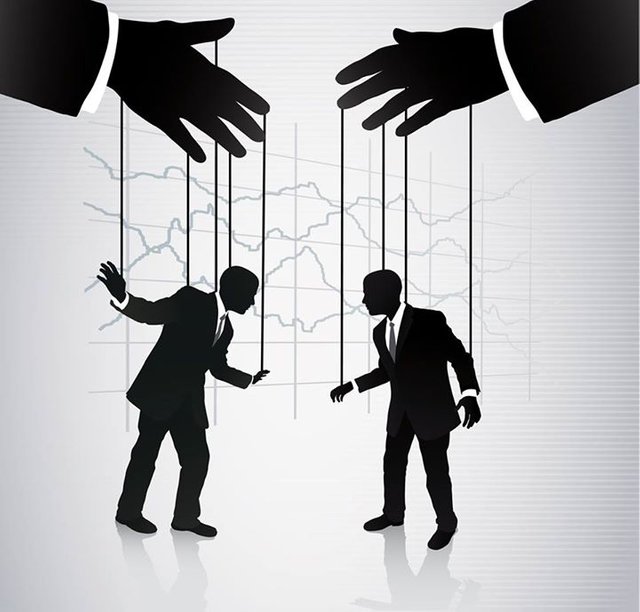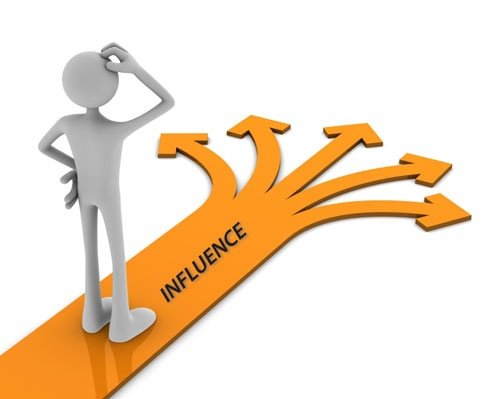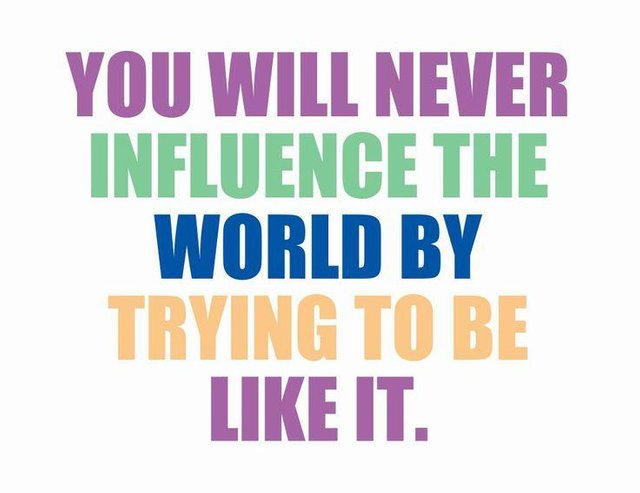Understanding The Science of Manipulation and the Influence of Psychology

Image Source
Endeavors to influence the considerations and activities of others are probably as old as time, yet manipulation did not turn into a science until the mid twentieth century, when Ivan Pavlov, a Russian educator of psychology, distributed his exploration on learned reflexes. Pavlov found that by ringing a chime when he sustained a puppy, he could condition the pooch to dribble at the sound of the ringer notwithstanding when no nourishment was introduced.
An American psychologist, John Watson, was awed with Pavlov's discoveries and connected them to human behavior. In Watson's most popular trial, he let a child touch a lab rodent. At to begin with, the child was unafraid. In any case, at that point Watson hit a mallet against metal at whatever point the infant contacted touch the rodent, and the infant wound up plainly startled and cried. In time, the child cried at seeing the rodent as well as at seeing anything textured, for example, a soft toy.
Less notable is Watson's use of behaviorist principles to publicizing. He spent the last piece of his vocation working for publicizing offices and soon perceived that the best interest to purchasers was not to the brain but rather to the feelings. He prompted publicists to tell something that will tie him up with fear, something that will mix up a gentle wrath, that will get out a friendly or love reaction, or strike at a profound psychological or propensity require.
His demeanor toward the customer is maybe best demonstrated by an announcement he made in an introduction to retail chain administrators: The purchaser is to the maker, the retail chains and the publicizing organizations. Watson presented these systems in the 1930s, the time of daily papers and radio. Since the approach of TV, these promoting techniques have developed more complex and successful, to such an extent that numerous people and gatherings with political and social motivation have received them.
The methodologies work for various reasons, the central one being individuals' conviction that they are impenetrable to manipulation. This conviction is mixed up, the same number of specialists have illustrated. For instance, Solomon Asch demonstrated that individuals' responses can be modified essentially by changing the request of words in an arrangement. He requested that review members assess a man by a progression of descriptive words. When he put positive descriptive words to start with, astute, innovative, rash, basic, stiff-necked, jealous, the members gave a positive assessment. When he switched the request, with desirous starting things out and astute last, they gave a negative assessment.
Additionally, investigate has demonstrated that human memory can be controlled. The way an inquiry is asked can change the points of interest in a man's memory and even make a man remember something that never happened. Obviously, publicists and individuals with political or social motivation are not substance to invigorate feelings and additionally plant thoughts in our psyches. They likewise try to strengthen those impressions by rehashing them and once more.
The more individuals hear a trademark or argument, the more commonplace it progresses toward becoming. A little while later, it ends up plainly unclear from thoughts created through cautious idea. Unfortunately, the bundling is frequently done as such viably that the watcher, audience, or peruser does not make up his own brain by any means. Rather, he embeds a bundled assessment into his brain, to some degree like embeddings a DVD into a DVD player. He at that point pushes a catch and plays back the supposition at whatever point it appears to be proper to do as such. He has performed acceptably without having needed to think. Huge numbers of the convictions we hold dearest and guard most overwhelmingly may have been planted in our psyches in simply along these lines.
Numerous years prior, Harry A. Overstreet noticed that an atmosphere of feeling, similar to a physical atmosphere, is so unavoidable a thing that the individuals who live inside it and know no other underestimate it. The ascent of mass culture and the modern utilization of manipulation have made this knowledge more important today than any time in recent memory.

Image Source
Influence of Psychology
The social and psychological hypotheses of our time additionally affect our convictions. Before the previous couple of decades, individuals were asked to act naturally taught, self-basic, and self-destroying. They were encouraged to hone abstinence, to try to self-learning, to act in a way that guaranteed they kept up confidence. Conceit was viewed as a bad habit. Diligent work, they were told, prompts accomplishment, and that thus creates fulfillment and self-assurance.
All things considered, our grandparents disguised those lessons. When they respected them in their behavior, they felt pleased; when they disrespected them, they felt embarrassed. Today the hypotheses have been changed to be sure, precisely switched. Confidence, which nineteenth-century comedian Ambrose Bierce characterized as an incorrect appraisement, is presently viewed as an objective.
Narcissism has been changed from bad habit into prudence, and individuals who dedicate their lives to helping other people, individuals once thought to be brave and saintlike, are currently said to be burdened with an infection to satisfy. The recipe for progress and satisfaction starts with liking ourselves. Understudies who do ineffectively in school, specialists who don't make the grade regarding the difficulties of their occupations, substance abusers, offenders all are regularly analyzed as insufficient in confidence.
Similarly as our grandparents disguised the social and psychological hypotheses of their time, so most contemporary Americans have disguised the message of confidence. We hear individuals discuss it over espresso; we hear it interminably summoned on television shows. Difficulties to its statutes are generally met with dissatisfaction.
A negative impression of our capacities will, obviously, incapacitate our execution. Dr. Maxwell Maltz clarifies the astounding outcomes one teacher had in enhancing the evaluations of schoolchildren by changing their mental self views. The instructor had watched that when the youngsters considered themselves to be dumb in a specific subject, they unwittingly acted to affirm their mental self portraits.
They trusted they were dumb, so they acted that way. Thinking that it was their defeatist mentality as opposed to any absence of capacity that was undermining their endeavors, the instructor embarked to change their mental self views. He found that when he finished that, they never again acted moronically. Maltz finishes up from this and different cases that our encounters can work a sort of self-sleep induction on us, proposing a decision about ourselves and after that asking us to make it materialize.
Numerous defenders of confidence went a long ways past Maltz's showing that self-assurance is an essential fixing in progress. They guaranteed that there is no such thing as a lot of confidence. Research does not bolster that claim. For instance, Martin Seligman, a prominent research psychologist and organizer of the development known as constructive psychology, refers to critical confirmation that, as opposed to taking care of individual and social issues, including sorrow, the advanced accentuation on confidence causes them.

Image Source
Maltz's exploration records that absence of certainty obstructs execution, a profitable knowledge. In any case, such research doesn't clarify why the more worldwide idea of confidence has turned out to be so predominant. The response to that inquiry lies in the promotion of the work of humanistic psychologists, for example, Abraham Maslow. Maslow portrayed what he called the pecking order of human needs as a pyramid, with physiological necessities at the establishment.
Different speculations may have been embraced, be that as it may. An eminent one is Austrian therapist Viktor Frankl's, which was progressed at generally an indistinguishable time from Maslow's and depended on both Frankl's expert practice and his encounters in Hitler's inhumane imprisonments. Frankl contends that one human need is higher than self-completion: self-amazing quality, the need to transcend limit retention with self.
The primordial anthropological actuality that being human is as a rule constantly coordinated, and indicating something or somebody other than oneself: to a significance to satisfy or another human being to experience, a reason to serve or a man to love. A man turns out to be completely human by overlooking himself and giving himself, ignoring himself and centering outward.
Making self-completion the immediate question of our interest, in Frankl's view, is eventually pointless; such satisfaction can happen just as the unintended impact of self-amazing quality. The best possible point of view on life, Frankl accepts, is not what it can provide for us, but rather what it anticipates from us; life is day by day even hourly addressing us, trying us to acknowledge the obligation to locate the correct solution to its issues and to satisfy the undertakings which it continually sets for each of us.
Discovering significance, as indicated by Frankl's hypothesis, includes seeing a plausibility installed truly and hunting down testing assignments whose finish may add importance to presence. However, such seeing and looking are disappointed by the attention on self: As long as present day writing limits itself to, and mollifies itself with, self-articulation not to state self-display, it mirrors its writers' feeling of worthlessness and ridiculousness. What is more essential, it additionally makes silliness.
This is justifiable in light of the way that significance must be found, it can't be developed. Sense can't be made, however what may well be made is garbage. Regardless of whether we concur totally with Frankl, one thing is clear: Contemporary American culture would be particularly unique if the accentuation in the course of recent decades had been on Frankl's hypothesis instead of on the speculations of Maslow and the other humanistic psychologists.

Image Source

Upvoted
Downvoting a post can decrease pending rewards and make it less visible. Common reasons:
Submit
This post received a 1.5% upvote from @randowhale thanks to @mxzn! For more information, click here!
Downvoting a post can decrease pending rewards and make it less visible. Common reasons:
Submit
good read
Downvoting a post can decrease pending rewards and make it less visible. Common reasons:
Submit
Thank you
Downvoting a post can decrease pending rewards and make it less visible. Common reasons:
Submit
I was just talking about something similar at work today why people behave a certain way are what born that way or do we learn it.
Downvoting a post can decrease pending rewards and make it less visible. Common reasons:
Submit
Glad that you were able to relate to my post.
Downvoting a post can decrease pending rewards and make it less visible. Common reasons:
Submit
Psychology - as a profession - is highly overrated and abused by many 'doctors', milking the living daylight out of people in perpetuity without offering tangible help other than 'listening'.
Not all are like this, of course.
One of the most remarkable therapists I have read is Milton H Erickson.
His work amazing therapeutic work is documented in the book: Ericksonian Approaches- A Comprehensive Manual.
A telling account on how manipulation of the mind can be used in positive ways.
Of course, the greatest manipulation today, in my view, is mass-programmed onto us through Television. I have started this article series about it, if of interest.
Excellent post.
-ch @globocop
Downvoting a post can decrease pending rewards and make it less visible. Common reasons:
Submit
Thanks for your insights. Appreciated
Downvoting a post can decrease pending rewards and make it less visible. Common reasons:
Submit
A great post, requiring a lot of thought (that's good), links to reference the research would have have been a nice addition but we can Google if we want.
You got an upvote & resteem from me (not worth much but they do add up).
Steem on beyond the moon, we know we can go further than that.
Good luck to us all.
Downvoting a post can decrease pending rewards and make it less visible. Common reasons:
Submit
Yeah, goodluck to us :)
Downvoting a post can decrease pending rewards and make it less visible. Common reasons:
Submit
You are really inspiring me with your amazing work.
I love to read contents about psychology. But I could never write one, I always go off topic.
I should probably ge a writing course... soon..lol
Did you study in the Philippines?
Great job @juvyjabian!
Downvoting a post can decrease pending rewards and make it less visible. Common reasons:
Submit
Yes, I studied here in phil
Downvoting a post can decrease pending rewards and make it less visible. Common reasons:
Submit
nice! you are really good, what did you study in college?
Downvoting a post can decrease pending rewards and make it less visible. Common reasons:
Submit
Accounting :)
Downvoting a post can decrease pending rewards and make it less visible. Common reasons:
Submit